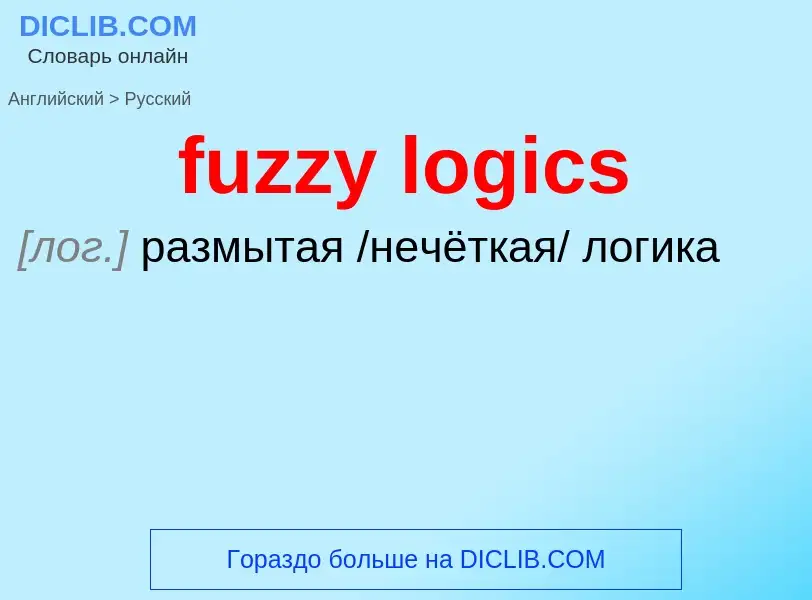Μετάφραση και ανάλυση λέξεων από την τεχνητή νοημοσύνη ChatGPT
Σε αυτήν τη σελίδα μπορείτε να λάβετε μια λεπτομερή ανάλυση μιας λέξης ή μιας φράσης, η οποία δημιουργήθηκε χρησιμοποιώντας το ChatGPT, την καλύτερη τεχνολογία τεχνητής νοημοσύνης μέχρι σήμερα:
- πώς χρησιμοποιείται η λέξη
- συχνότητα χρήσης
- χρησιμοποιείται πιο συχνά στον προφορικό ή γραπτό λόγο
- επιλογές μετάφρασης λέξεων
- παραδείγματα χρήσης (πολλές φράσεις με μετάφραση)
- ετυμολογία
fuzzy logics - translation to ρωσικά
общая лексика
нечёткая логика
формальная система логики, разработанная Лотфи-заде (Lotfi Zadeh, университет Беркли) в 60-х годах, являющаяся расширением обычной Булевой логики. В ней значения "истина" и "ложь" заменяются значениями функции на отрезке [0, 1] (концепция частичной правды). Позволяет уйти от однозначности ответа на вопрос. Часто используется в экспертных и самообучающихся системах и системах распознавания образов
математика
нечеткая (размытая) логика
Смотрите также
Ορισμός
Βικιπαίδεια
Fuzzy logic is a form of many-valued logic in which the truth value of variables may be any real number between 0 and 1. It is employed to handle the concept of partial truth, where the truth value may range between completely true and completely false. By contrast, in Boolean logic, the truth values of variables may only be the integer values 0 or 1.
The term fuzzy logic was introduced with the 1965 proposal of fuzzy set theory by Iranian Azerbaijani mathematician Lotfi Zadeh. Fuzzy logic had, however, been studied since the 1920s, as infinite-valued logic—notably by Łukasiewicz and Tarski.
Fuzzy logic is based on the observation that people make decisions based on imprecise and non-numerical information. Fuzzy models or fuzzy sets are mathematical means of representing vagueness and imprecise information (hence the term fuzzy). These models have the capability of recognising, representing, manipulating, interpreting, and using data and information that are vague and lack certainty.
Fuzzy logic has been applied to many fields, from control theory to artificial intelligence.

